Resolution 71 of the Politburo on breakthroughs in education and training development continues to emphasize that education is the top national policy and key driving force for national development.
At the National Conference to disseminate the Politburo's Resolutions yesterday (September 15), General Secretary To Lam once again affirmed that investing in education is investing in the future of the nation, nurturing "national vitality".
One of the policies considered to be a breakthrough for education and training set out in Resolution 71 is to build a unified set of textbooks nationwide.
The Government has issued Resolution 281/NQ-CP Action Program to implement Resolution 71, in which the Ministry of Education and Training is assigned to review and complete the General Education Program, increase the duration of science, technology, information technology, and arts subjects; ensure the provision of a unified set of textbooks nationwide for use from the 2026-2027 school year; and implement a roadmap to provide free textbooks to all students by 2030.
The implementation of a national set of textbooks is expected by many experts, teachers, and parents to create fairness, unity, and uniformity in the quality of education nationwide, reducing the waste of textbooks. This is an important step, meeting the legitimate aspirations of the people.
Demonstrate the State's responsibility for caring for general education
Dr. Nguyen Thi Mai Hoa, Vice Chairwoman of the National Assembly's Committee on Culture and Society, emphasized: "Ensuring the provision of a unified set of textbooks nationwide affirms the State's responsibility for caring for general education."
According to her, this is a policy that demonstrates the superiority of the regime, is in line with the people's wishes, and meets the aspirations of the majority of parents and students.
Also according to Dr. Mai Hoa, the previous innovation of general education programs and textbooks followed the spirit of Resolution No. 88/2014/QH13 of the National Assembly.
As a result, 3 sets of textbooks compiled in the form of socialization have been widely taught nationwide, meeting the need to provide a rich and diverse textbook system for teachers and learners.
However, through the supervision of the National Assembly Standing Committee (2023) and voters' feedback, it shows that there are still some shortcomings and inefficiencies in the organization and implementation stage, and waste...
Therefore, the need for a set of State textbooks has been mentioned many times in voters' petitions, on the National Assembly forum and in Resolution 686 of the National Assembly Standing Committee.
“Before the recent eighth session, voters continued to send their opinions to the 15th National Assembly, requesting consideration and unification of a common set of textbooks for students of the same grade level nationwide to avoid waste,” said the Vice Chairman of the Committee on Culture and Society.

Dr. Nguyen Thi Mai Hoa, Vice Chairwoman of the National Assembly's Committee on Culture and Social Affairs (Photo: Hong Phong).
According to her, in terms of social significance and educational activities in general, having a unified set of textbooks nationwide is meaningful.
Specifically, in terms of social significance, the regulation of a unified set of textbooks will help parents no longer worry about textbooks for their children when welcoming the new school year; relieve psychological concerns related to studying, exams, and assessments related to textbooks when their children transfer schools...
“This certainly brings joy to parents, especially families with difficult economic conditions and low incomes,” Ms. Hoa shared.
In terms of general education activities, the regulation of a unified set of textbooks nationwide also overcomes the shortcomings in the activities of publishing and using books due to the book selection process; reduces the pressure in building a high school graduation exam question bank when it must ensure suitability, objectivity, and fairness for candidates studying different sets of textbooks.
With the above meanings, the Committee for Culture and Society always maintains the viewpoint that there should be a set of State textbooks, used uniformly nationwide. The policy of ensuring the provision of a set of uniform textbooks nationwide affirms the State's responsibility in providing a set of high-quality textbooks, at reasonable costs, consistent in teaching and assessing high school graduation results.
Develop and build a question bank to free the mindset of rote learning.
Vice Chairwoman of the National Assembly's Committee on Culture and Society Nguyen Thi Mai Hoa commented that in recent times, we have implemented the mechanism of "one program, many textbooks" to aim for flexibility and creativity in the implementation of the 2018 General Education Program.
Textbooks are considered learning materials for teachers to research, refer to, and create appropriate teaching materials; helping learners develop their own abilities, not depending on model lessons.
However, Ms. Mai worries: "Unfortunately, this goal seems to have not been achieved, because in reality, teaching is still mainly based on lectures built on the basis of a selected set of textbooks."
Dr. Nguyen Thi Mai Hoa also shared that having a unified set of textbooks nationwide should not mean that schools only use one set of textbooks; and it is also not to deny the socialization of textbooks because according to the provisions of the current Education Law, "each subject has one or several textbooks", "socializing the compilation of textbooks" to create diverse learning materials, meeting the needs of learners.

Teachers and students need to access other textbooks to enrich teaching and learning content (Photo: Huyen Nguyen).
“It is important to guide and encourage teachers and students to access other textbooks to enrich teaching and learning content. With the concept of studying for the exam, the high school graduation exam question bank that reflects this spirit will be an important driving force for the use of many textbooks for teaching and learning activities,” said Dr. Nguyen Thi Mai Hoa.
Sharing the same view, engineer Le Dung, an expert with many years of policy research, proposed separating the right to create exam questions from schools and emphasized the importance of building a question bank.
He believes that because old habits are still deeply rooted, the practice of zoning, limiting, providing sample papers, or rote learning still exists somewhere in schools, because the right to set questions still belongs to the school.
“To break those limitations, completely liberate the educational mindset that depends on pre-prepared “cheat sheets”, and bring education back to its true nature, the exam questions must be issued by an agency independent of the school,” Mr. Dung proposed.
According to the engineer, the immediate solution is to use the exam questions of this commune for other communes, and the exam questions of this province for other provinces. In other words, before the semester exam, all communes in the province submit exam questions to the Department of Education and Training. During the exam, each commune will randomly draw lots through electronic software, and the right exam questions will be taken.
For important exams, such as the end of the school year or the end of a school level, random draws will be used between provinces. The provinces will submit the exam papers to the Ministry of Education and Training and the Ministry will conduct random draws.
The long-term solution is to build a question bank. Mr. Dung also encouraged the application of having all schools work together to build data for the national question bank.
Mr. Nguyen Van Luc, former teacher at Trinh Phong Secondary School, Khanh Hoa, suggested that when there is a unified set of textbooks used nationwide, it is necessary to focus on changing thinking, emphasizing that textbooks are only learning materials.
“This helps teachers and students refer to the textbooks they are using so as not to waste knowledge. In fact, many teachers when teaching have also researched many textbooks, selected new knowledge, or from different books to have a quality lesson plan to help students absorb the lesson easily,” Mr. Luc said.
Source: https://dantri.com.vn/giao-duc/mot-bo-sgk-thong-nhat-toan-quoc-tu-2026-dap-ung-nguyen-vong-cua-nhan-dan-20250917070744574.htm



![[Photo] General Secretary To Lam chairs a working session with the Standing Committee of the Government Party Committee](https://vphoto.vietnam.vn/thumb/1200x675/vietnam/resource/IMAGE/2025/9/17/cf3d855fdc974fa9a45e80d380b0eb7c)




![[Photo] Science and Technology Trade Union honors exemplary workers and excellent union officials](https://vphoto.vietnam.vn/thumb/1200x675/vietnam/resource/IMAGE/2025/9/17/842ff35bce69449290ec23b75727934e)




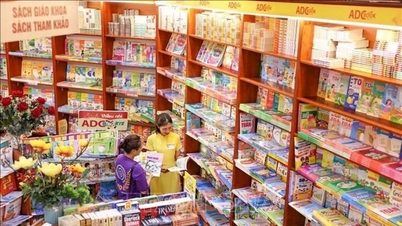













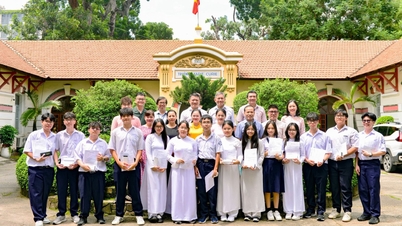















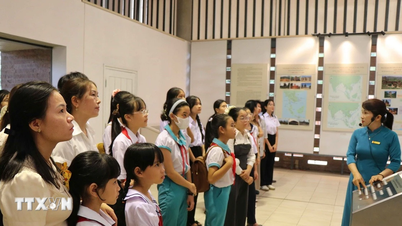

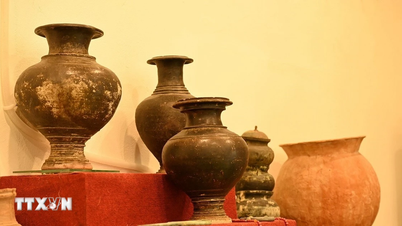



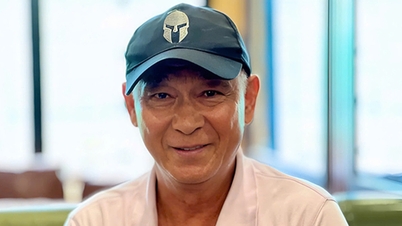
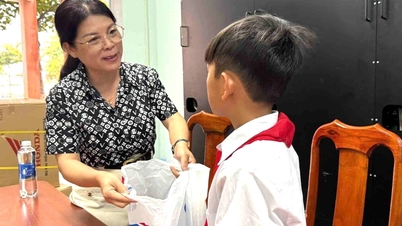
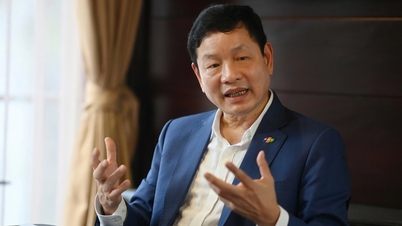


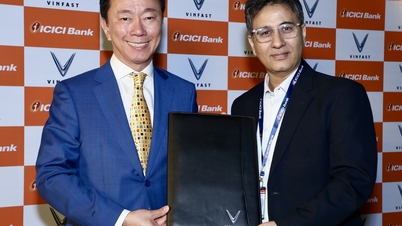






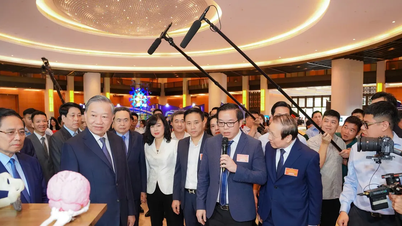











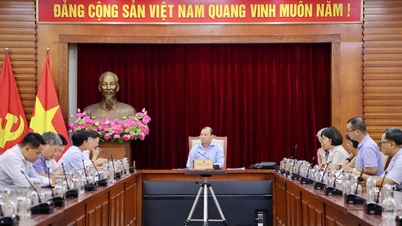






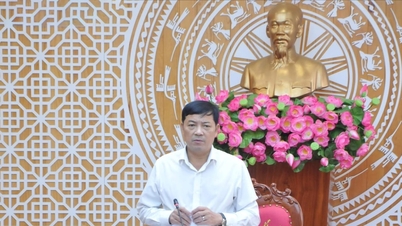



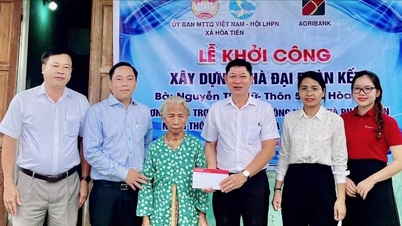





















Comment (0)